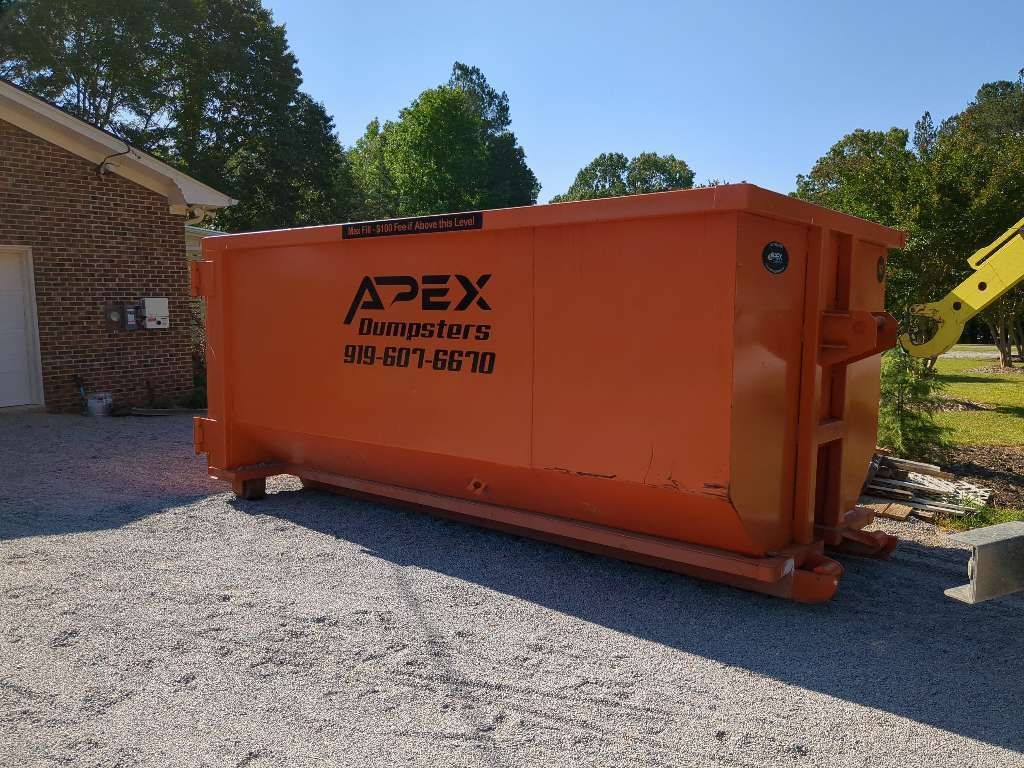Apex Dumpsters Blog
The History and Evolution of Dumpsters

Dumpsters have become an integral part of our daily lives, providing a convenient and efficient way to handle waste and maintain cleanliness. Dumpsters have a fascinating history, evolving from simple garbage cans to the versatile roll-off containers we see today. We hope that you are able to take a moment to appreciate the rich history and evolution behind this seemingly simple yet indispensable invention...
The Emergence of Early Waste Disposal:
Throughout history, humans have always generated waste. In ancient civilizations, waste was commonly discarded in designated areas or dumped into nearby bodies of water. However, as societies grew and urbanization increased, the need for more organized waste management systems became evident.
The Advent of Garbage Cans:
In the late 19th century, the first version of what we now recognize as a garbage can emerged. These early containers were typically made of metal and had lids to keep the odors and pests at bay. The introduction of garbage cans marked a significant shift towards more organized waste management practices.
The Invention of the Dumpster:
The term "dumpster" originated from the Dempster Brothers, a waste management company based in Knoxville, Tennessee. In 1935, George Roby Dempster invented the first practical dumpster, known as the Dempster-Dumpster. This large metal container featured a hinged lid and wheels for easy transportation. It revolutionized waste collection by providing a more efficient and hygienic solution.
Standardization and Popularity:
The widespread adoption of dumpsters began in the 1940s as waste management companies recognized their advantages. Standard sizes and dimensions were established to facilitate compatibility and ease of collection. The introduction of front-loading garbage trucks enabled efficient lifting and emptying of the dumpsters, further streamlining the waste management process.
Roll-Off Containers:
As industrialization progressed, construction sites and large-scale projects demanded a more flexible waste management solution. In the 1960s, roll-off containers were introduced to cater to these specific needs. Roll-off containers, characterized by their rectangular shape and wheels, could be easily transported and placed various locations. Their versatility and capacity made them ideal for handling construction debris and bulky waste materials.
Environmental Considerations:
Over time, the focus on environmental sustainability and waste reduction grew. Dumpster manufacturers started incorporating features such as sealed lids, recycling compartments, and additional security measures to prevent unauthorized access. Recycling efforts and the introduction of separate compartments within dumpsters helped promote responsible waste disposal practices.
Technological Advancements:
In recent years, technology has played a significant role in improving waste management processes. Dumpster monitoring systems have been developed to optimize routes and prevent overflowing. Some systems even employ sensors to measure the fill level of dumpsters, allowing for more efficient scheduling of pick-ups.
From their humble beginnings as basic garbage cans to the modern roll-off containers, dumpsters have come a long way. The evolution of waste management practices has been driven by the need for efficient, hygienic, and sustainable solutions. Today, dumpsters play a crucial role in maintaining cleanliness and managing waste across various industries. As we continue to focus on environmental sustainability, it is likely that dumpsters will undergo further advancements to meet the evolving needs of waste management.
Apex Dumpsters recognizes the need for proactive waste management. When you are ready for us to bring a roll off dumpster to your home or job site, please call Apex Dumpsters at 919-607-6670.










